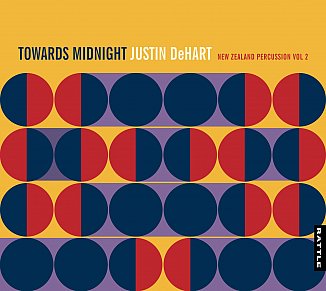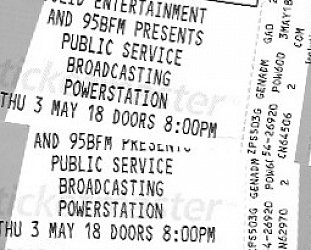Graham Reid | | 1 min read
Infinite Mind Part II: Noam

American composer and percussion player Justin DeHart – currently an associate professor at the University of Canterbury – is taking New Zealand percussion music to the world through this series on Rattle of works he has commissioned and performs.
If the title of his previous volume Landfall suggested the Allen Curnow poem Landfall in Unknown Seas (and Douglas Lilburn's musical setting of it), perhaps alluded to his own arrival here, this current collection has a much more universal and portentous theme: the unknown future.
Or perhaps more acutely – in the compositions by John Psathas – that which we do know: a nuclear apocalypse.
Psathas' two-part Infinite Mind includes the voice of Noam Chomsky, in the first part talking about the doomsday countdown to midnight and the second about those who are taking us there.
Psathas' music isn't quite as menacing as expected given his theme in the first part, Terminal. But rather it offers flighty marimba melodies, dipping every now and then into something ominous. It is the seduction of the marimba set against the voice of Chomsky which creates an engrossing counterpoint.
But the eerie landscape of the second, Noam, with its looped sounds in the middle-ground – and the current situation in the US political landscape right now – give it a real chill and uneasiness.
(By coincidence I happened to be listening to the first part when I was writing this article about nuclear war.)
Elsewhere the album bursts into life with Gareth Farr's opening gamelan-inspired composition Macet (traffic jam in Balinese) with an electronic backdrop; DeHart plays with stones in a piece Korero Kohatu by From Scratch's Phil Dadson and undertakes a composition by Antonia Barnett McIntosh on numerous instruments and objects but is instructed to make thoughtful choices of their own.
The final composition by James Gardner seats DeHart at a slight variation of the traditional drum kit, which the composer notes comes with “substantial baggage from jazz and rock music”. The composition only alludes to those but has its own life through the use of different sticks or brushes and so on.
As before, this music probably isn't for most listeners (which is why we put it in our Further Outwhere pages) but sits at the very cusp of sound innovation which challenges preconceptions but – notably in the Psathas pieces – forces us to stop and think.
.
You can hear and buy this album at bandcamp here.





post a comment